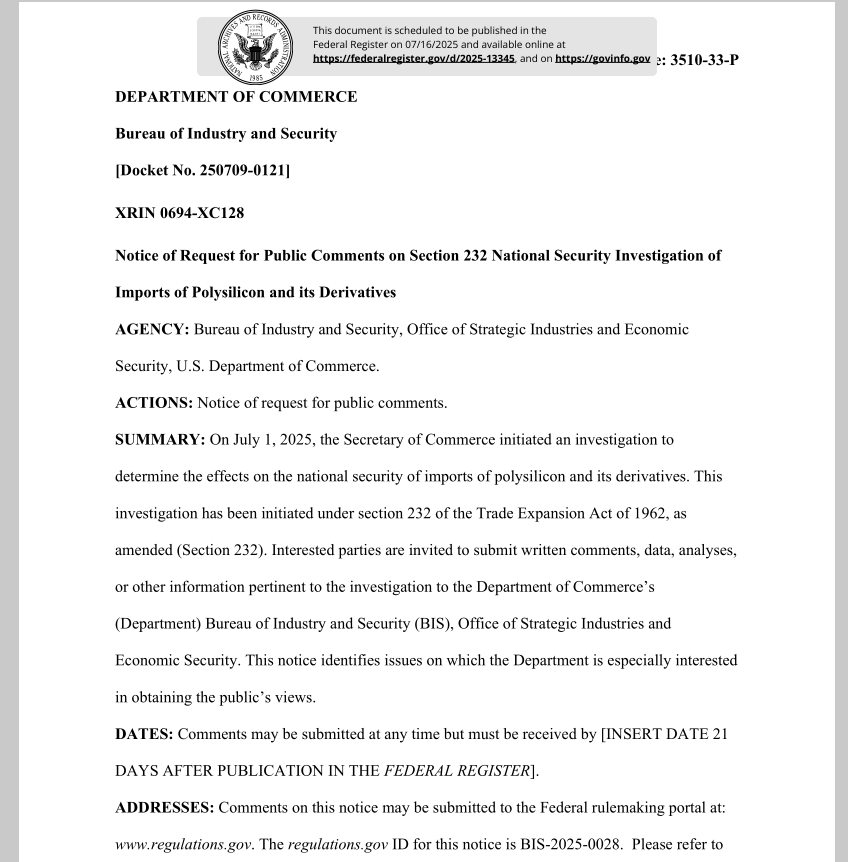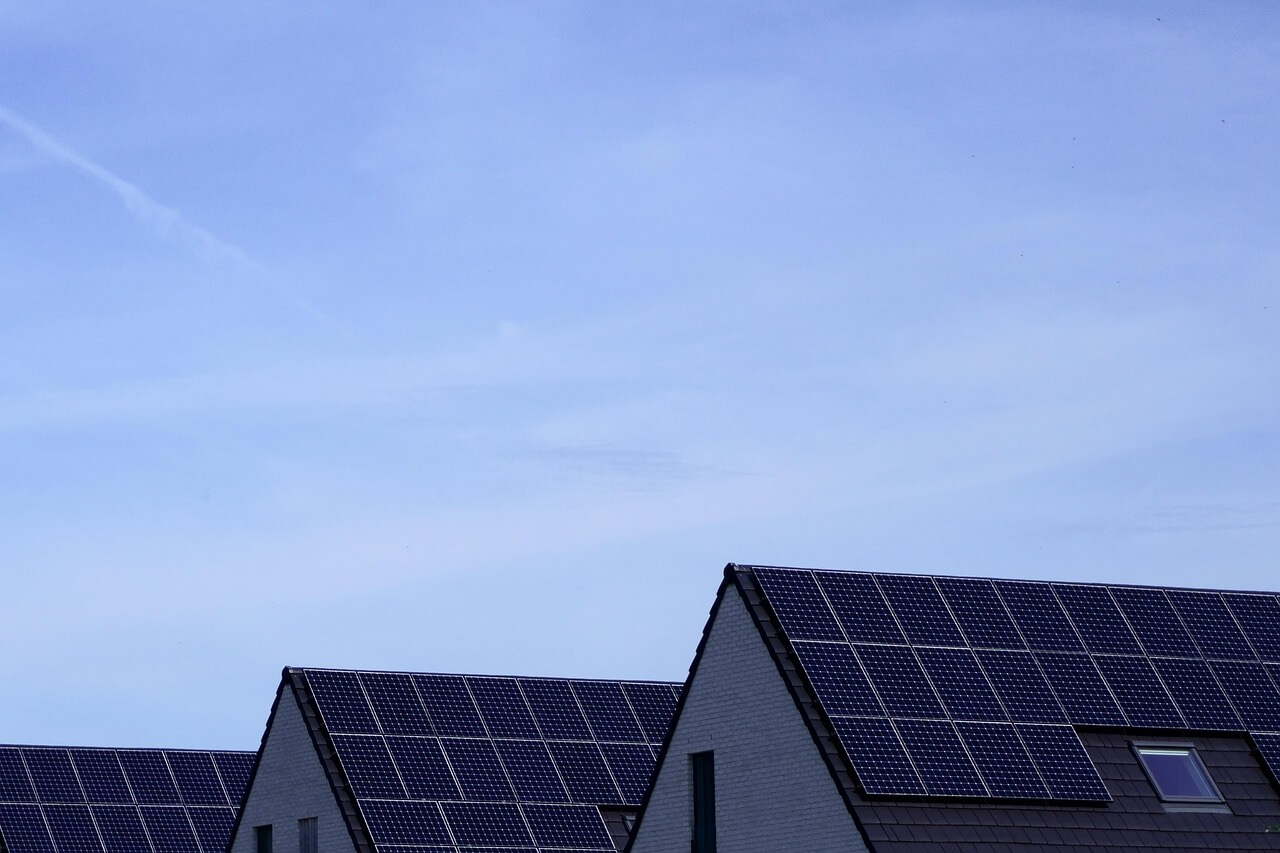According to the latest news, on July 14 local time, the US Department of Commerce's Bureau of Industry and Security (BIS) published two important documents in the Federal Register, officially announcing the initiation of investigations to determine the effects on the national security of imports of polysilicon and its derivatives, as well as imported drones and related components.

It is reported that this investigation was initiated by the US Department of Commerce under section 232 of the Trade Expansion Act of 1962. This law authorizes the Department of Commerce to conduct investigations into the impact of imported products on national security. Within 270 days of initiating the investigation, the Department of Commerce must submit an investigation report to the President and propose recommended measures to address national security threats. Subsequently, the President will decide whether to agree with the Department of Commerce's conclusions and whether to take action (such as imposing tariffs) to adjust relevant imports, thereby mitigating their impact on national security.
Key focuses of this investigation:
(i) the current and projected demand for polysilicon and its derivatives in the United States;
(ii) the extent to which domestic production of polysilicon and its derivatives can meet domestic demand;
(iii) the role of foreign supply chains, particularly of major exporters, in meeting United States demand for polysilicon and its derivatives;
(iv) the concentration of U.S. imports of polysilicon and its derivatives from a small number of suppliers and the associated risks;
(v) the impact of foreign government subsidies and predatory trade practices on the competitiveness of the polysilicon and its derivatives, in the United States;
(vi) the economic impact of artificially suppressed prices of polysilicon and its derivatives due to foreign unfair trade practices and state-sponsored overproduction;
(vii) the potential for export restrictions by foreign nations, including the ability of foreign nations to weaponize their control over supplies of polysilicon and its derivatives;
(viii) the feasibility of increasing domestic capacity for polysilicon and its derivatives to reduce import reliance;
(ix) the impact of current trade policies on domestic production of polysilicon and its derivatives, and whether additional measures, including tariffs or quotas, are necessary to protect national security; and
(x) any other relevant factors.
Please note that this news is sourced from https://m.solarbe.com/21-0-50004106-1.html and translated by SMM.

![[SMM PV News] Armenia Hits 1.1 GW Solar Capacity,](https://imgqn.smm.cn/usercenter/qQwIB20251217171741.jpg)
![Spot Market and Domestic Inventory Brief Review (February 5, 2026) [SMM Silver Market Weekly Review]](https://imgqn.smm.cn/usercenter/tSwaX20251217171735.jpg)
